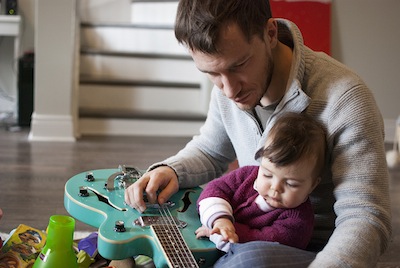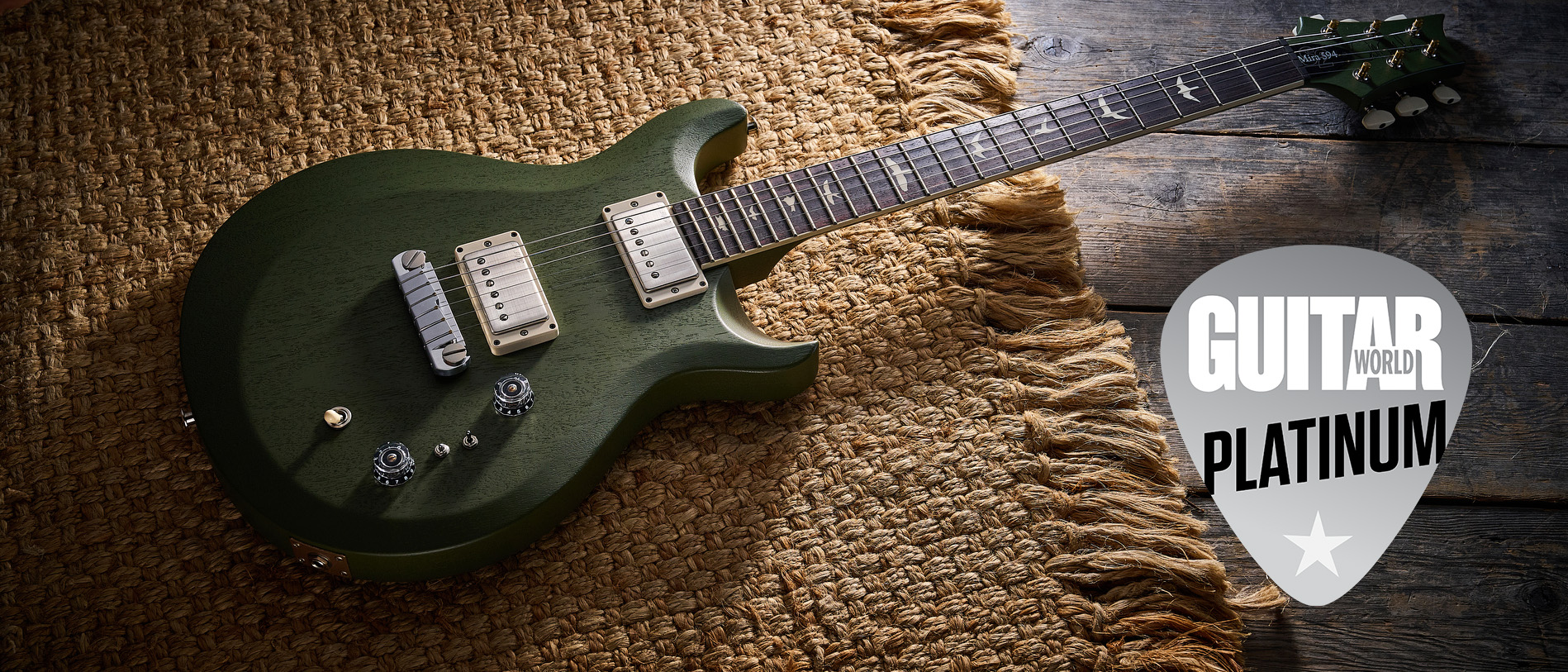Musical Fluency: Try Learning Guitar the Same Way Young Children Pick Up Languages

It’s absolutely amazing how quickly young kids can pick up languages. As it turns out, adults can pick up languages at the same rate (three to five years), but only if they’re in the same circumstances.
Since music is itself a sort of language, wouldn’t it be interesting to see if the circumstances that let kids pick up languages so quickly also let adults pick up music more quickly?
Here are a couple of ideas from language acquisition that can be applied to learning or teaching guitar.
Encouragement Before Correction
When infants first start making sounds, what sort of reaction do they get from those around them? Absolute amazement! We start baby-talking with them even though they probably don't understand much of what we're saying. And despite the fact that they've only made some sound that sort of resembles a word, we still incorporate their attempts into a sort of conversation.
We don't try to correct the baby's pronunciation or grammar or teach them how to decline nouns or conjugate verbs. We give them attention and encourage them to just keep making sounds.
What about with teaching music? Unfortunately, playing music has a certain aura around it. A lot of people believe those who can play music are like wizards with access to some super-human magic, divinely bestowed upon them in the form of talent. And so they fear that making mistakes reveals that they are mere mortals, passed over in the heavenly handing-out of musical aptitude.
All the latest guitar news, interviews, lessons, reviews, deals and more, direct to your inbox!
This fear of mistakes is the single biggest obstacle to learning to play a musical instrument. In contrast, I've seen over and over again with my students that the ones who don't see mistakes as personal faults are the ones who progress the fastest. It's not that they don't care if they sound bad. It's that they don't care if they sound less than perfect right away.
Let's take the same approach with learning music that we do with encouraging babies to start talking. At the beginning, the goal should be exploration. What sort of sounds can you get the instrument to make? That’s why it’s called it playing an instrument, not working an instrument.
Play With Others
I don't mean to say that there's no work involved in learning an instrument. Work comes in when you want to develop new skills to allow you to play in new ways. But the goal is playing music, creating sounds for the purpose of expression.
Young kids start talking with those proficient in a language right away, their parents. They don't have to take language lessons for years before speaking with non-babies. They don't have to wait until they have a huge vocabulary to start having real conversations. They're already expressing themselves by creating sounds. They play with what they've got, even if it's just "Da da."
The best way to encourage yourself or someone else when learning a musical instrument is to play with others. And it doesn't matter if you have a small musical vocabulary. The sooner you can start putting what you know to use with others the better. Just like a parent talking with their child, a more experienced player can guide you along and encourage you to try new things on your instrument.
So start with a few basics, and then play with those basic ideas. How can you interact with other musicians using those sounds? How can you express through those sounds? It's this interaction that makes music so great. This is something that it’s possible experience right from the beginning of learning an instrument, and it's great inspiration along the way.
Ben Rainey works as a guitar teacher and freelance guitarist in the Pittsburgh area. He's also in charge of music content at Tunessence.com.
